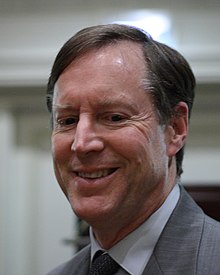Theodore Porter

Theodore M. Porter (born 1953) is a professor who specializes in the history of science in the Department of History at UCLA. He has authored several books, including The Rise of Statistical Thinking, 1820-1900; and Trust in Numbers: The Pursuit of Objectivity in Science and Public Life. According to [1] Trust in Numbers is a ground breaking work, the closest one can get to a universal reference for a sociology of quantification. His most recent book, published by Princeton University Press in 2004, is Karl Pearson: The Scientific Life in a Statistical Age. Dr. Porter graduated from Stanford University with an A.B. in history in 1976 and earned a Ph.D. from Princeton University in 1981. In 2008, he was elected to the American Academy of Arts and Sciences.[2]
Works
- The Rise of Statistical Thinking (1986)
- Trust in Numbers: The Pursuit of Objectivity in Science and Public Life (1995)
- The Modern Social Sciences, with Dorothy Ross (2003)
- Karl Pearson: The Scientific Life in a Statistical Age (2004)
- Genetics in the Madhouse: The Unknown History of Human Heredity (2018)
External links
Notes and references
- ^ E. Popp Berman and D. Hirschman, “The Sociology of Quantification: Where Are We Now?,” Contemp. Sociol., vol. 47, no. 3, pp. 257–266, 2018.
- ^ Faculty Elected to American Academy of Arts and Sciences — History Archived 2008-07-26 at the Wayback Machine
